Exam season is looming — here’s how to get better sleep when you’re anxious
Experts weigh in on the best sleep tips to beat anxiety
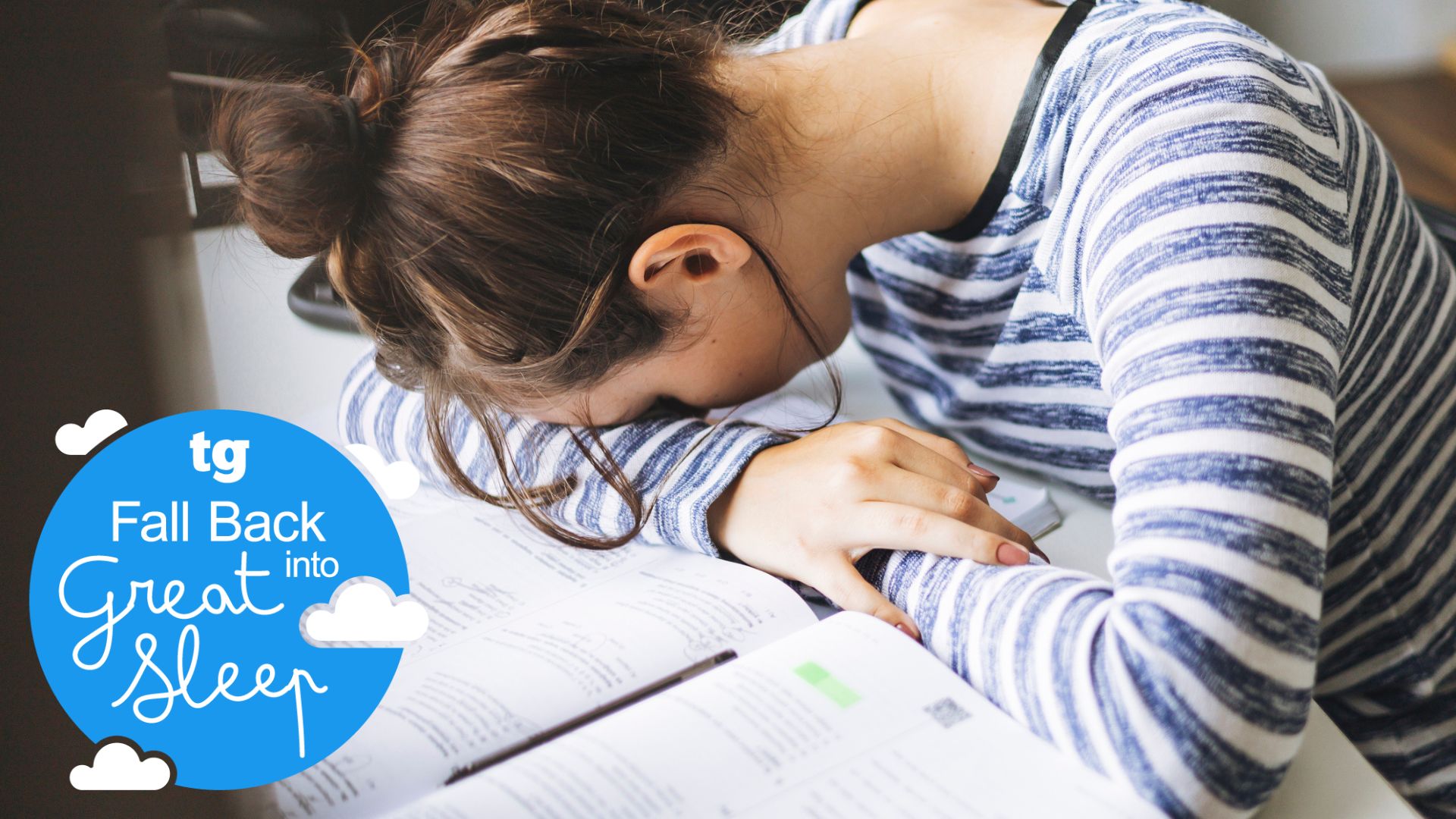
It’s fast-approaching — that time of year when many of us might feel tempted to sacrifice sleep in order to study. After all, during exam season it can feel like every second counts when it comes to revising.
Cue late night cramming sessions and feeling unable to switch-off even when it is time to rest. And this can have a dramatic impact on your sleep. A recent study showed 98% of university students reported poor sleep quality during exam season, with many reporting they slept fewer hours each night.
But with less sleep, stress and anxiety can increase. For our week-long Fall Back into Great Sleep campaign, we asked sleep consultant and founder of The Sleep Works, Maryanne Taylor, how to get better sleep during exam season and tips for calming an anxious mind.
So how does anxiety affect our sleep?
Periods of intense anxiety and stress keep the nervous system stuck in ‘alert mode’, or, as it’s more commonly known, ‘fight or flight’.
“Being hyper alert for long periods of time raises cortisol (our stress hormone) and throws off the natural production of melatonin, which is what helps us feel sleepy at night,” says Taylor.
“When that rhythm is disrupted, it can show up as either us struggling to fall asleep, waking up through the night, waking too early, or a combination of all three.”
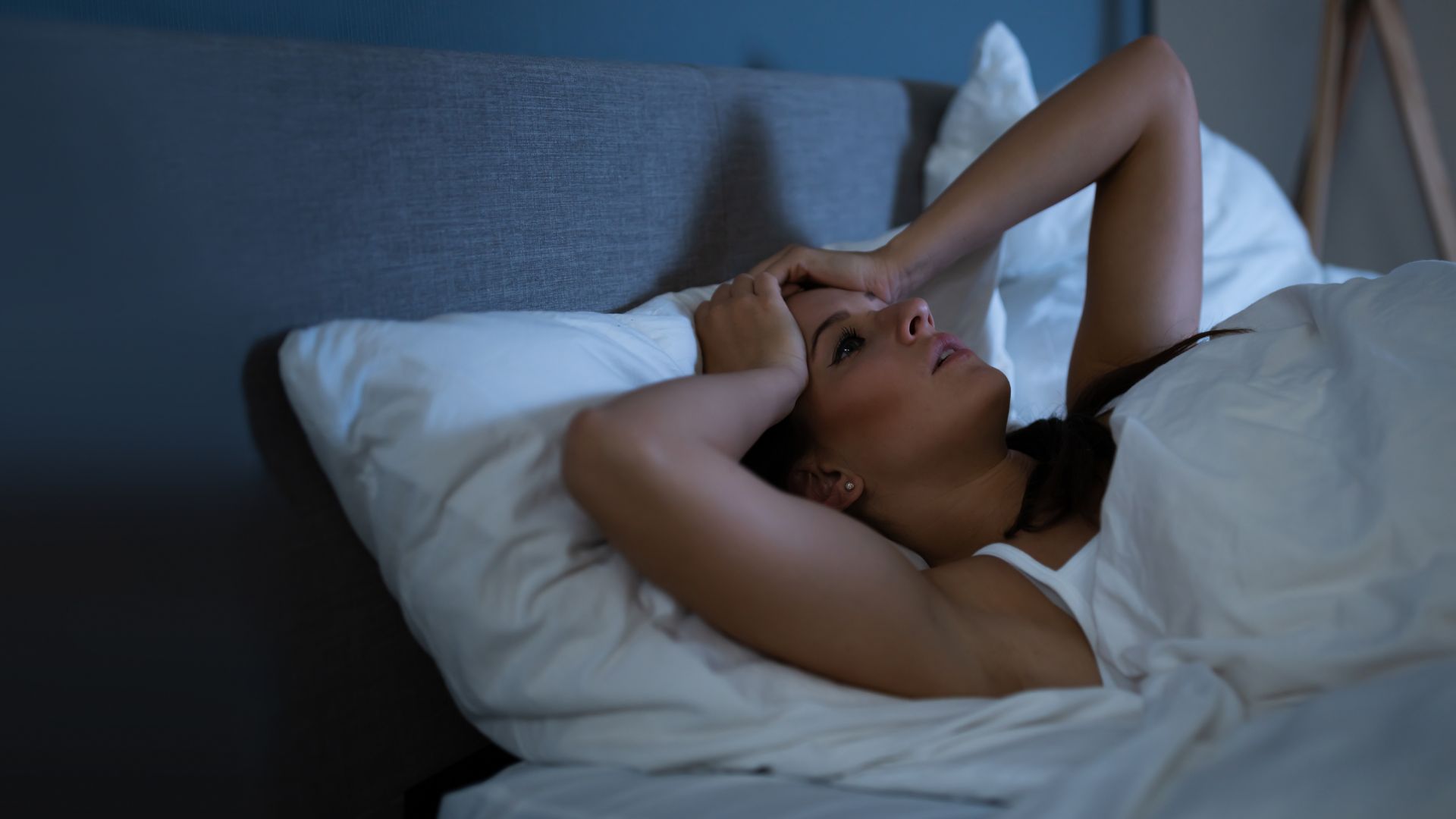
Then, it becomes a vicious cycle where disrupted sleep makes it harder to regulate emotions and calm the nervous system, so we feel more anxious and less resilient the next day. Which can in turn make studying feel impossible.
Get instant access to breaking news, the hottest reviews, great deals and helpful tips.
Good sleep and emotional balance share the same foundation which is a calm, well-regulated nervous system
“When we are sleep-deprived, the brain’s threat response also becomes more sensitive, which is why even small stresses can feel overwhelming after a few bad nights, so we’re less able to cope with even small setbacks,” Taylor explains.
The less sleep we have, the less emotionally resilient we are and the more anxious we feel, and the cycle continues.
“Good sleep and emotional balance share the same foundation which is a calm, well-regulated nervous system, when we support one, we naturally support the other,” the sleep consultant adds.
How to sleep your way through exam season
On a practical level, sleep isn’t only essential for good mental health, but also for memory — more on that later — first, here are Taylor's top tips on how to sleep your way through exam season:
Keep wake times and bedtimes the same
Taylor explains that our circadian rhythm (our internal body clock) needs consistency.
Just because you don’t have an exam tomorrow, don’t go out until the early hours tonight
"Waking up at around the same time every day keeps your circadian rhythm stable, which in turn helps regulate hormones so you feel naturally more alert in the morning, calmer through the day, and sleepier at night," she says.
So you’ll be less likely to feel frazzled even with the added pressure of exam stress.
"But don’t be tempted to have a blow-out on the weekends — consistency is key. Just because you don’t have an exam tomorrow, don’t go out until the early hours tonight because there will be a knock-on effect as your body tries to get back into its natural sleep rhythm," Taylor explains.
Prioritise sleep as part of your study plan
"Cutting sleep to revise more might feel productive in the moment, but it actually makes recall, concentration and problem-solving harder the next day," the sleep consultant explains.
When you sleep, your brain consolidates what you’ve learnt and stores it for when you need it
She points to research which shows that if you haven’t slept, your ability to learn something new drops by 40%.
"Sleep isn’t ‘lost’ study time. When you sleep, your brain consolidates what you’ve learnt and stores it for when you need it," Taylor says.
Rather than staying up late looking over and over your notes, she suggests prioritizing getting at least eight hours of sleep to help improve your recall.

Be mindful with caffeine
Taylor explains that caffeine impacts sleep because of the way it stops a chemical we produce, called adenosine, from doing its job.
Caffeine blocks adenosine receptors and increases alertness, according to the Yale School of Medicine, which is significant for your sleep because, as you use up energy during the day adenosine builds in your brain and increases sleep pressure (or sleep drive).
The half-life of caffeine can be anywhere from 5-6 hours, which means it can take a full 12 hours to leave your syste,, "so even a mid-afternoon coffee or energy drink can push back your natural sleep window, leaving your brain in overdrive when you stop studying," Taylor says.
If you’re planning to have a caffeinated drink, Taylor suggests working backwards from your planned bedtime to find a cut-off point for your final cup of the day, ideally around 10 hours before bed.
This aligns with following the 10-3-2-1-0 rule, in which you restrict caffeine 10 hours before your intended sleep time, an effective way of ensuring your rest isn't disrupted.
Take daylight breaks
It may be tempting to spend the entire day inside studying, but you'll be missing out on all important sunlight, says Taylor.
"Natural light is one of the strongest signals for your body clock. Daylight suppresses melatonin (the sleepy hormone) and helps to stimulate serotonin which helps regulate our mood and energy levels," she explains.
"Getting outside, even for ten minutes between study sessions will boost your focus and alertness in the day and help your system wind down more easily at night."
Morning light in particular will help regulate your body clock and with the production of melatonin later in the day.
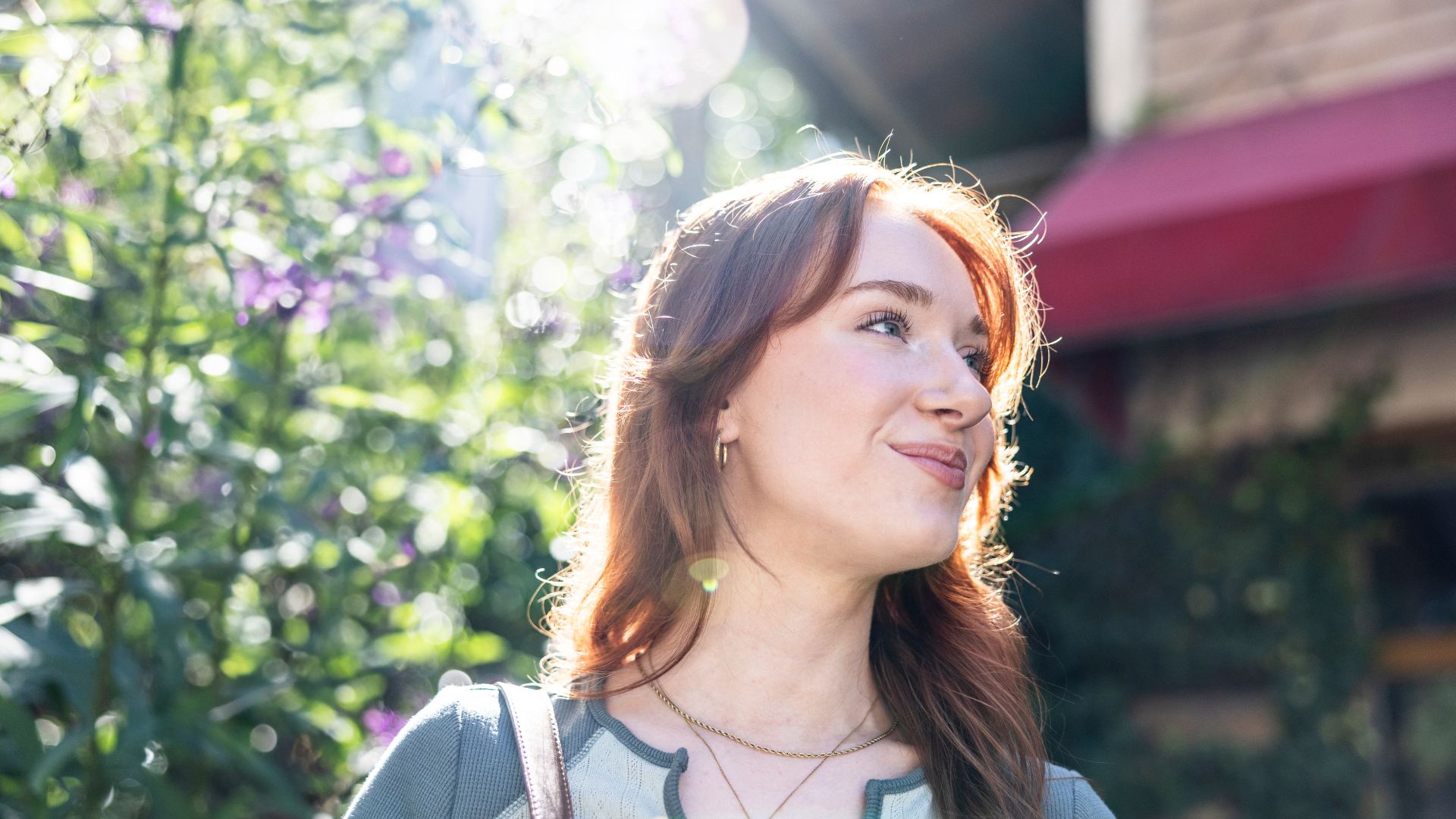
Create a short wind-down window
When exams are imminent, you may be feeling the pressure to cram in every waking moment, but Taylor has this important advice: "stop studying at least 30 minutes before bed. Dim the lights, stretch, journal or listen to something calming."
Stop studying at least 30 minutes before bed
"That short buffer signals to your brain that the day is done and gives your nervous system a chance to gradually switch off," she explains.
Even if it feels counterproductive to spend (slightly) less time studying, you're helping yourself relax and get into a mental and physical state conducive to sleep.
After all, as Taylor says; "a well-rested brain works faster, remembers more, and handles pressure better."
My top tips for relaxing at night
It’s all well and good telling you to sleep well ahead of your exams, but an anxious mind can make it feel impossible to switch off. Here's my advice on how to create a calming bedtime routine.
1. Preparation is key
Write ‘tomorrow’ down — before bed, make a quick list of anything that’s in your mind that you need to get done the next day.
This simple step helps your brain stop running through your ‘to-do’ list, which can, in turn, aid in decreasing anxiety because you’re not worrying you’re going to forget anything overnight.
In fact, one study found that participants who wrote a 'to do' list fell asleep faster than those who wrote a list of tasks they had completed already.
Similarly, organizing everything you need for the next day will help reduce clutter in your room that can cause stress and anxiety and cause sleep issues, and give you peace of mind that one task for the following day is already completed.

2. Step away from study mode
Spend the last 20–30 minutes before bed doing something completely unrelated to study — read a fiction book or magazine, listen to music or podcast.
Having a nighttime routine (or making sure you stick to it if you already do this) helps prepare you for sleep with a series of calming activities, and even if you're not spending hours on it while you're studying, it can still help.
Research shows reading for just six minutes can reduce stress by up to 68%. Stick to something light, not your study material, and enjoy the escapism. This helps your brain shift from 'alert' mode into relaxation mode.
Plus, it helps you avoid screens. As well as keeping your brain alert, if you're viewing something upsetting it can activate your stress response, which is likely to make any existing anxiety worse.
3. Gentle movement and relaxation techniques
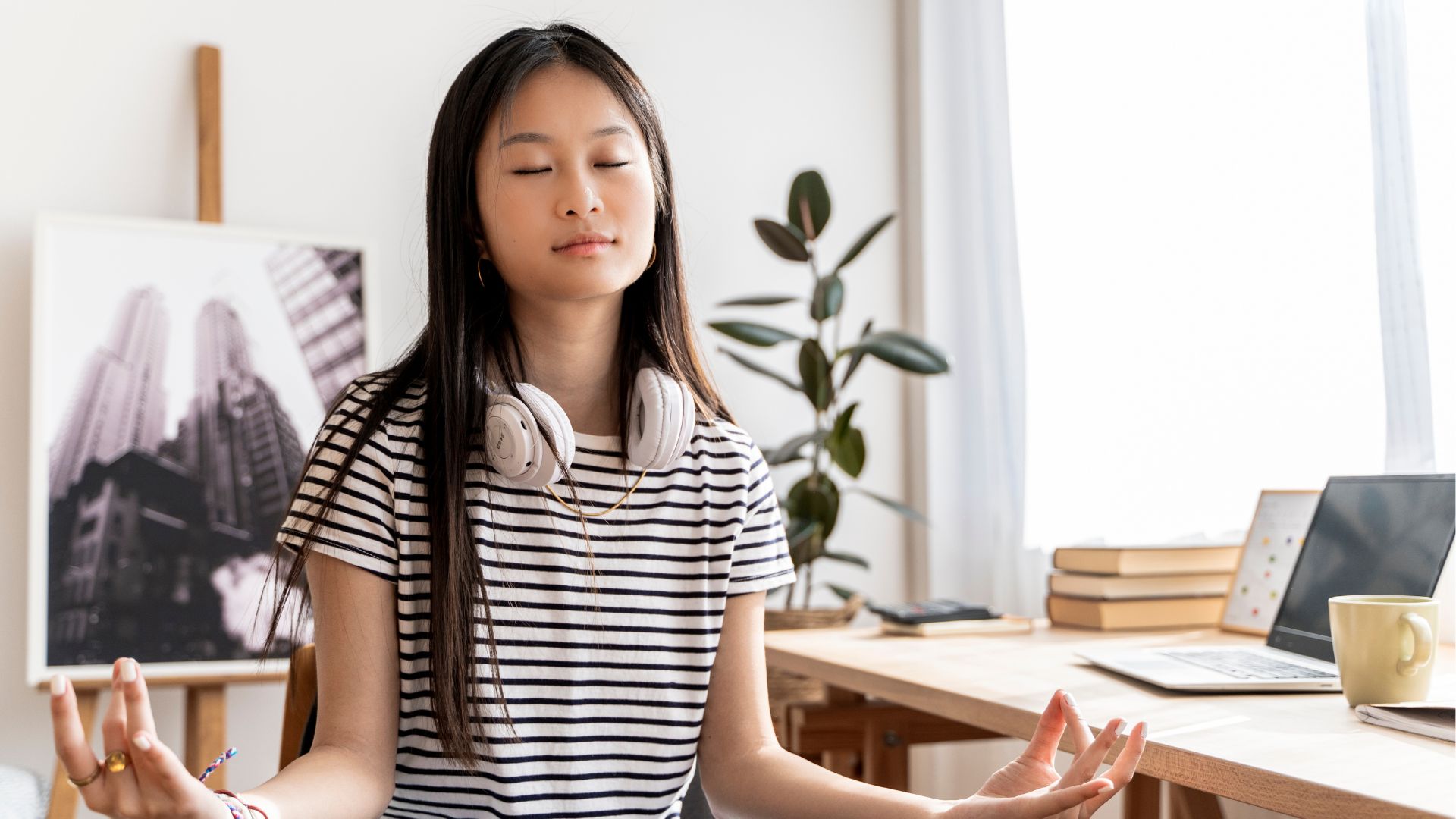
Consider five minutes of stretching, slow breathing or meditation — all three of these relaxing activities help activate the parasympathetic nervous system (our 'rest and digest' state).
Gentle stretching helps release physical tension from sitting or studying all day, while meditation, particularly before sleep, can ease stress and anxiety and even help with melatonin production.
Deep breathing exercises such as box breathing (which lowers the heart rate and can reduce stress), and the 4-7-8 method (great for combatting anxiety) are typically easy to master and can help you fall asleep faster.
Additionally, before you sleep, try spritzing your pillow with an aromatherapy pillow spray containing lavender or clary sage essential oils; research shows aromatherapy can improve sleep quality and reduce stress, pain, anxiety, depression, and fatigue.
4. Perfect your environment
At night, your bedroom needs to be conducive to sleep, and that means creating the optimum conditions to allow rest to happen.
Lowering lights and reducing screen brightness, and keeping your room cool (ideally between 65 to 70 F) give clear signals to your body and brain that the day is done, night has arrived, and it's time to rest.
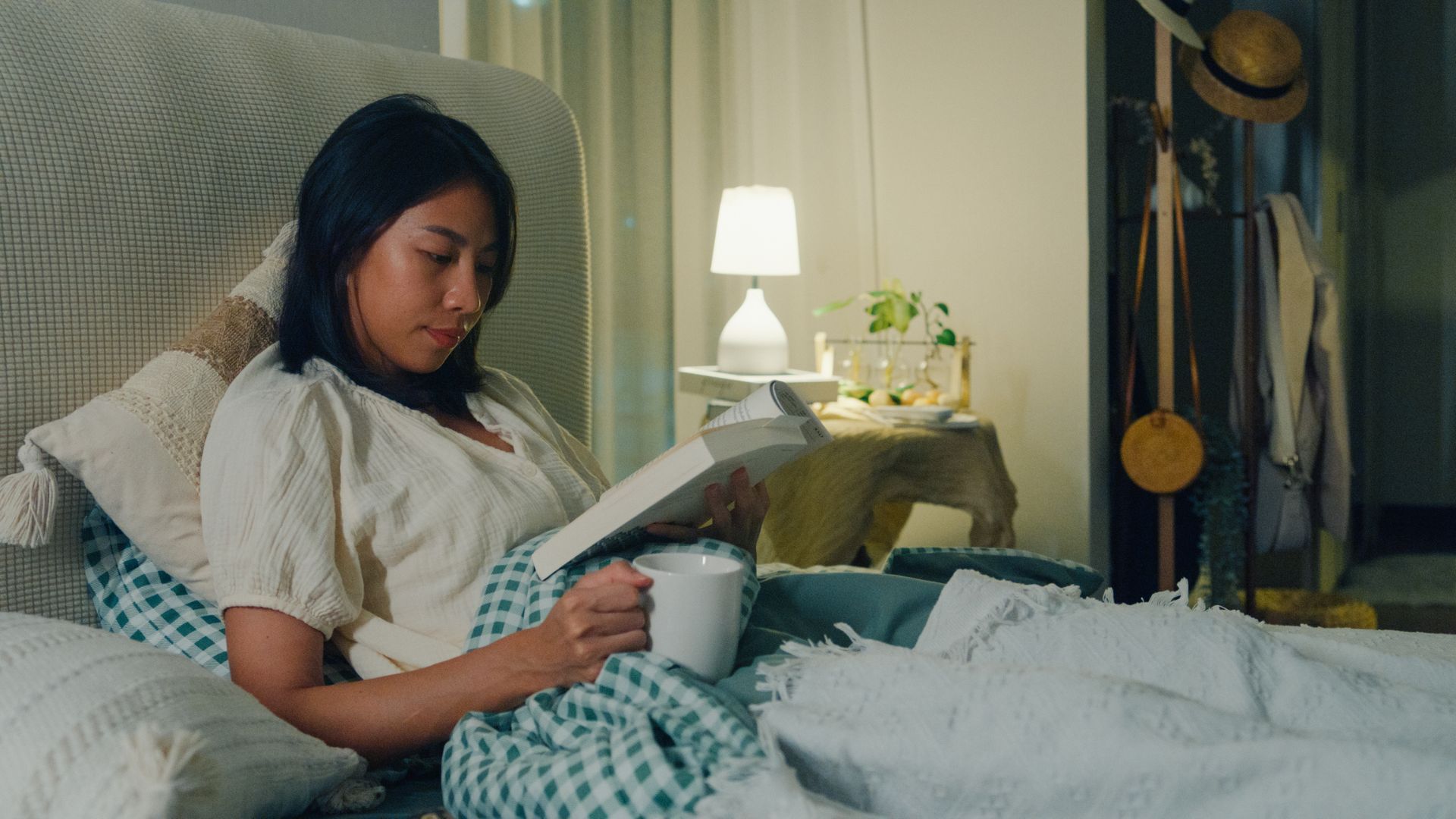
Ear plugs can block out any unwanted sounds, while an eye mask can make sure you're not disturbed by light pollution during the night.
It's also important to make sure you’ve nailed the basics. Are you sleeping on the best mattress for your body? Could a mattress topper improve your dorm bed?
Finally, if you have time, consider having a warm bath or shower before bed. This is useful for preparing for sleep as afterward, you'll experience a drop in core body temperature which is a key signal to our bodies that it’s time for sleep. Plus, a warm bath will also help ease tension in your muscles and leave you feeling more relaxed.

Bethan is a freelance journalist, brand consultant and copywriter, specialising in beauty, fashion, wellbeing, and health. She has over 17 years' experience working across print and digital platforms on national weekly, monthly and bi-monthly magazines, including Stylist online, Refinery29, Elle Australia, Grazia Australia, OK!, The Sunday Mirror, The Metro, Stella and Telegraph online, and more. Bethan has a keen interest in sleep and, crucially, how she somehow can get more of it.
You must confirm your public display name before commenting
Please logout and then login again, you will then be prompted to enter your display name.
 Club Benefits
Club Benefits





